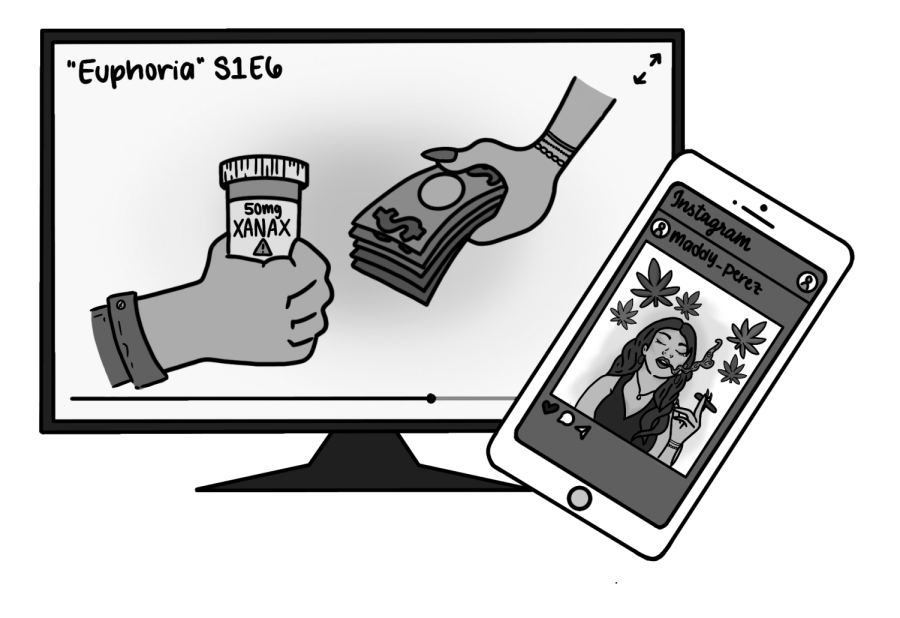A&E: Should mature media be reserved for mature audiences?
When scrolling through streaming platforms, there are countless shows and movies to watch at the press of a button. As the amount and variety of entertainment has grown, some cannot help but wonder if the media that is being released is impacting society in the right way. Franchises such as “Scream,” “American Horror Story” and “Fifty Shades of Grey” explore explicit topics that many believe are not appropriate for younger audiences.
With the access that many young people have to the internet, it is often easy for teenagers to watch mature media. The SCHS community explores whether these types of media impact teenagers in a harmful way.
According to sophomore Ysabella Vicconde, mature media can be educational. They believe that many do not pay much attention to the severity of topics such as drug use when they are taught in schools, so TV can bring awareness to these topics in a way that appeals to a younger generation.
“With DARE (Drug Abuse Resistance Education), I didn’t really pay attention to that stuff, but since it’s on TV, we can really see another perspective,” Vicconde said.
Similarly, freshman Kenny Gray has observed that many are unaware of the consequences of certain actions, such as fighting and unprotected sex, but mature media provides a platform for them to be taught through entertainment. He believes that being uneducated about these topics will make them more appealing because they are unknown.
“If you don’t see it at a young age, then as you grow without it, you’re gonna feel a stronger attraction to it because you’re curious about it,” Gray said. “And it can lead you to maybe trying those things yourself rather than just knowing about them by seeing them in the media.”
Gray also believes that many people will not be strongly influenced to partake in dangerous actions because of what they see on TV. He believes that many understand that their actions should not be based on what is shown in the media.
“I don’t think we should base what we do on a TV show,” Gray said. “I don’t think we should go, ‘Oh, I saw this person do this in a movie, so I’m gonna do that.’”
Vicconde, however, also noted that there are some people who do follow what the media shows them. They think that many shows depict the scary side of mature topics, such as drug use and violence, but some turn a blind eye and only see the fun aspects. They treat certain material they consume from the media as factual and realistic when it’s possible that the truth is stretched.
“There’s definitely people who like to idolize TV shows a lot, and then be like, ‘This person did this, so I should do it too,’” Vicconde said.
Social science teacher Emily Haven pointed out that consuming such media can make viewers numb to the severity of these topics.
“There is this thing in the psyche world called the violence viewing effect,” Haven said. “Basically, what we’ve seen from the violence viewing effect is that we become desensitized to things we experience on a regular basis. So if you view a lot of violence, you are desensitized to violence.”
There are mixed opinions on whether these genres of mature media are addictive or repulsive, and whether or not teenagers should be watching them. Many believe that young audiences should find what they can and cannot handle and consider how what they are watching will affect them before turning on a mature show.
“I think that it just depends on the person and whether they want to or not, and how they can handle that,” Gray said. “You should be doing this just for yourself. What you can watch, what you can handle and what you can’t.”


